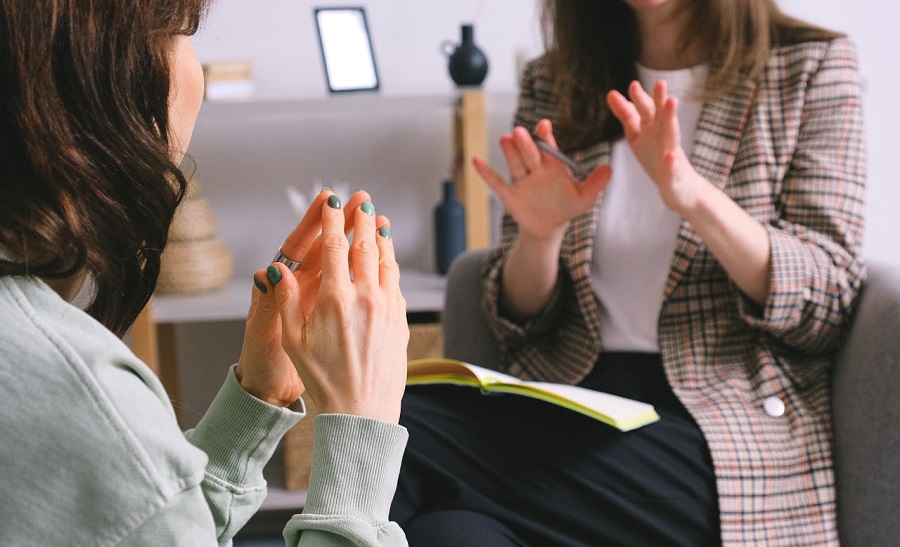Legal aid for domestic violence in the UK

If you’re facing violence, coercive control, or threatening behaviour from a partner or family member, you likely have one urgent question: can I afford legal help for domestic violence? The answer is usually yes. While legal aid for abuse victims works differently, you don’t need to be financially destitute to qualify, and the process is faster than you think. Indeed, the system recognises your need for swift protection orders and family law support. At Qredible, we connect you directly with specialist domestic violence and abuse solicitors who understand both the legal framework and the human reality of your situation.

Key Takeaway: Can I afford a solicitor for domestic violence?
Discover exactly how to qualify, what’s covered, and how to access funded legal protection for your domestic violence case.
What legal aid covers in domestic abuse cases
Legal aid for domestic violence extends beyond courtroom representation; it funds the full range of family law proceedings that protect you and your children. The coverage includes:
- Occupation orders: Determining who can remain in or enter the family home.
- Emergency injunctions: Urgent court applications for immediate protection orders.
- Forced marriage protection orders: Automatic legal aid to prevent or escape forced marriage.
- Prohibited steps orders: Preventing an abuser from taking specific actions regarding your children.
- Child arrangement orders: Establishing where children live and contact arrangements when abuse is involved.
- Non-molestation orders: Legal funding to prevent your abuser from contacting, threatening, or approaching you.
- Divorce and financial settlements: Full representation for ending your marriage and dividing assets in domestic violence cases.
What legal aid for domestic violence does not cover: Important exclusions
While legal aid for domestic violence is comprehensive, certain situations fall outside its scope. Understanding these exclusions prevents disappointment and helps you plan alternative funding:
- Damages claims: Suing your abuser for personal injury compensation or civil damages isn’t covered.
- Pre-nuptial agreements: Drafting or challenging prenuptial agreements falls outside legal aid coverage.
- Mediation disputes: Standard family mediation sessions for couples separating amicably don’t receive funding.
- Criminal prosecution: Legal aid for criminal defence operates separately. This scheme covers civil family law
- Immigration matters: While abuse may be relevant, most immigration applications and visa issues require separate funding.
- General divorce without abuse evidence: If you cannot demonstrate domestic violence, your divorce proceedings won’t qualify for legal aid.
- Property disputes unrelated to immediate safety: Boundary disputes or property sales not directly connected to escaping domestic
Eligibility criteria for domestic abuse legal aid: Do you qualify?
Qualifying for legal aid in domestic violence cases is more straightforward than other family law matters. The key requirement is demonstrating you’ve experienced abuse through the gateway evidence; financial means testing does not apply in the same way.
- No merits means test: Unlike other legal aid applications, you don’t need to prove your case has a certain chance of success when domestic violence is involved.
- Automatic qualification: Once you provide valid gateway evidence of abuse, your case qualifies regardless of its legal complexity.
- Protection-focused approach: The system recognises that survivors need immediate access to legal representation without financial barriers delaying safety.
However, you must provide evidence of abuse from an approved source dated within specific timeframes:
- Court evidence: Protection orders, non-molestation orders, or relevant criminal convictions (no time limit).
- Social services records: Local authority evidence that you or your children are at risk of abuse (24 months).
- Police records: Police caution for a domestic violence offence by your abuser, or evidence of police involvement (24 months).
- Financial abuse alone: Bank statements, credit reports, or professional letters documenting economic abuse and financial control (24 months).
- Domestic violence support services: Letter from refuge, domestic abuse charity, or specialist support organisation like Women’s Aid (24 months).
- Multi-agency risk assessment: Referral to a MARAC meeting (Multi-Agency Risk Assessment Conference) discussing your case (24 months).
- Health professional letters: GP, hospital doctor, or mental health professional confirmation of injuries or trauma consistent with domestic violence (24 months).
How to apply for domestic abuse legal aid
The application process for domestic violence legal aid involves clear steps that your solicitor manages alongside you. Knowing what to expect helps you prepare and act quickly when safety is paramount:
- Find a legal aid solicitor: Contact a family law specialist who holds a legal aid contract. Qredible connects you with verified Domestic Violence and Abuse solicitors in your area.
- Initial consultation: Your solicitor assesses your situation, explains your options, and determines which proceedings you need.
- Gather your gateway evidence: Collect the documentation proving abuse as outlined in the eligibility section above.
- Complete the application form: Your solicitor submits form CIV APP1 to the Legal Aid Agency on your behalf, including all supporting evidence.
- Financial disclosure: Provide proof of income, benefits, and savings; bank statements, payslips, and benefit letters typically suffice.
- Legal Aid Agency assessment: The agency reviews your application, usually deciding within days for urgent domestic violence cases.
- Receive your certificate: Once approved, your legal aid certificate confirms what proceedings are covered and any financial contributions required.
- Begin legal proceedings: Your solicitor can now represent you in obtaining protection orders, filing for divorce, or addressing child arrangements.
Do I need a domestic violence and abuse solicitor?
The short answer is always yes when domestic abuse is involved. Legal aid covers the cost, so the only question is whether you want maximum protection or minimum protection:
- Speed matters in emergencies: Solicitors obtain emergency injunctions and protection orders in hours. You’ll wait days or weeks trying to navigate the system alone.
- Courts take you seriously: A solicitor presenting your case carries weight that self-representation doesn’t. Judges know specialist domestic violence and abuse solicitors understand the law and present credible evidence.
- No direct contact with your abuser: Your solicitor handles all communication and court appearances. You avoid intimidation, manipulation, and the trauma of facing the person who harmed you.
- You protect your financial future: Abuse victims often accept unfair divorce settlements or child arrangements just to escape quickly. Solicitors ensure you receive proper financial provision and safe custody arrangements.
FAQs
- Will I have to repay legal aid if my financial situation improves? Legal aid granted for domestic abuse cases isn’t repayable based on future income changes.
- What happens if my abuser contests my legal aid application? Your legal aid application is confidential and decided independently by the Legal Aid Agency. Your abuser has no involvement or knowledge of your funding.
- Does legal aid cover appeal proceedings if I lose my case? Yes, provided your solicitor demonstrates reasonable grounds for appeal. Emergency appeals receive immediate funding when safety is at risk.
Legal aid for domestic abuse removes financial barriers to safety and justice. With the gateway evidence requirements, accessible application process, and comprehensive coverage outlined above, you now have the knowledge to take the first step toward protection.
Find your domestic violence solicitor!
Qredible connects you with specialist domestic violence and abuse solicitors who understand legal aid and your urgent need for protection.
KEY TAKEAWAYS
- Legal aid for domestic abuse covers protection orders, divorce, child arrangements, and financial settlements without standard means testing.
- Applications are processed in days, or within 24 hours for emergencies. Your solicitor handles the paperwork while you gather proof of income and your gateway evidence.
- Professional representation isn’t optional when abuse is involved. Qredible’s specialist solicitors secure immediate protection, present evidence courts take seriously, handle abuser confrontation, and fight for fair settlements you won’t achieve alone.
Articles Sources
- childlawadvice.org.uk - https://childlawadvice.org.uk/information-pages/legal-aid-if-you-have-been-a-victim-of-domestic-abuse-or-violence/
- gov.uk - https://www.gov.uk/legal-aid/domestic-abuse
- flows.org.uk - https://www.flows.org.uk/
Do you need a solicitor?
Find a solicitor on Qredible in just a few easy steps


















